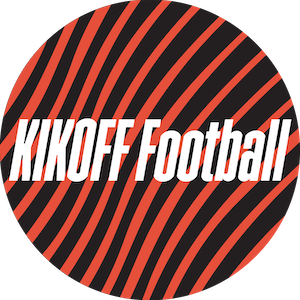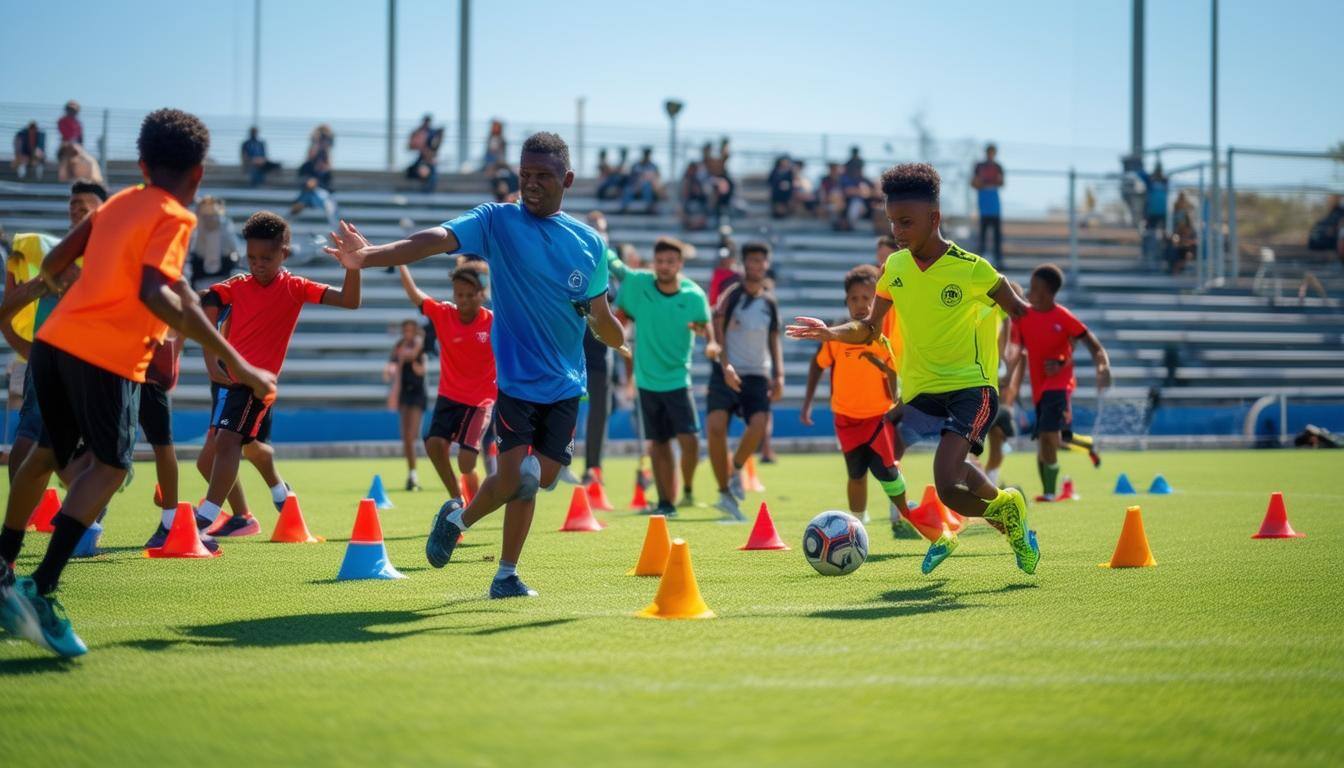What Are the Top 5 Things Players Do Wrong With Their Football Fitness?
Do you train at least 2x per week with a team during the football season?
Do you play more than 60 minutes on match day?
If you aren’t, then at least get to this level before reading on.
If you are at that level then now is a good time to have a look at what many players do wrong and make sure you aren’t making the same schoolboy errors.
1) Not Training Hard Enough
Training should be planned so some sessions feel physically harder than the match. This way the game will feel easier and allow that conserved energy to be used for quicker thinking and fresher legs when on the ball.
Of course, the type, volume, intensity and frequency of training all have to be considered.
We’ll get to that.
2) Training Too Hard
More does not equal better.
With a poorly planned program, more is just more. Which means you need even more recovery.
Also everything will come victim to the law of diminishing returns. Your body won’t just keep getting more powerful forever. Performing 3 fitness sessions when you are at a point when 1 session would get the same benefit makes no sense whatsoever!
If you miss pre-season, doing 2 sessions per day for 4 weeks isn’t going to do anything for you other than get you injured and tired.
When it’s time to train hard. Put in the work, there’s always some room for extras on those hard days. When it’s time to recover, recover even harder, which brings us to our next
point.
3) Not Recovering Well Enough
This goes hand in hand with ‘number 1’. We believe that training should be either high intensity or low intensity (not too much work in the ‘medium zone’).
This way, you are either recovering or going hard. Both support each other and this pattern is much like the match demands of a game. Hard work followed by lower intensity recovery.
You don’t need to recover if you don’t train hard. Bearing in mind, recovery doesn’t mean do nothing. You can train for 30-60 minutes at a lower intensity and still reap a host of recovery benefits whilst also being productive for match performance.
Many technical/tactical sessions could be classed as low intensity training and additionally more recognised low intensity sessions such as cycling, swimming, upper body strength, tempo running, bodyweight circuits, stretching and foam rolling.
The fundamentals of recovery: sleep well, eat well, drink water and have a laugh. Physical and mental regeneration!
4) Choosing The Wrong Training Methods
Bodybuilding style focused training, Cross-Fit, long distance slow jogging, doing everything with a bosu ball or swiss ball are main ones that come to mind when I think of training I often see amateur to semi-pro players doing.
Let’s clarify that over the course of a full year training cycle some of these methods may and probably will have their place in small doses but as a whole these methods can add unnecessary fatigue to your body and/or can just be a waste of precious training time.
There are countless ways for a footballer to get fitter, stronger, powerful, faster and reduce injury risk using alternative methods more suitable for a football player.
5) Training At The Wrong Time
Even a player with this best training program in the world can fail to be fresh for match day if his training takes place at the wrong time of the week/month/year.
Keep anything that makes you sore furthest away from game day. You should have 24-48 hours of a recovery window post-match – yes up to 48 hours of recovery (you can still train: see number 3).
Then you should put your hardest sessions after you’ve recovered from the last match (remember hard – easy – hard). Then you should start to taper your sessions before going hard again on match day.
Repeat for the season. Fresh for game day, fresh for training and recovery in between. Simple!
It can be complicated and difficult to put together a training program that suits your schedule, injury history, ability and goals. That’s why professional teams have full time sports science staff and strength & conditioning coaches to do it for them.
If you haven’t got the luxury access to that the you can try our pre-season and/or in-season e-book which has a progressive plan for you to hit peak performance come match day right through until the last game of the season.
If you want an even more individualised session then we offer extensive planning and preparation for football players of all levels at our conditioning facility here in Sydney.


